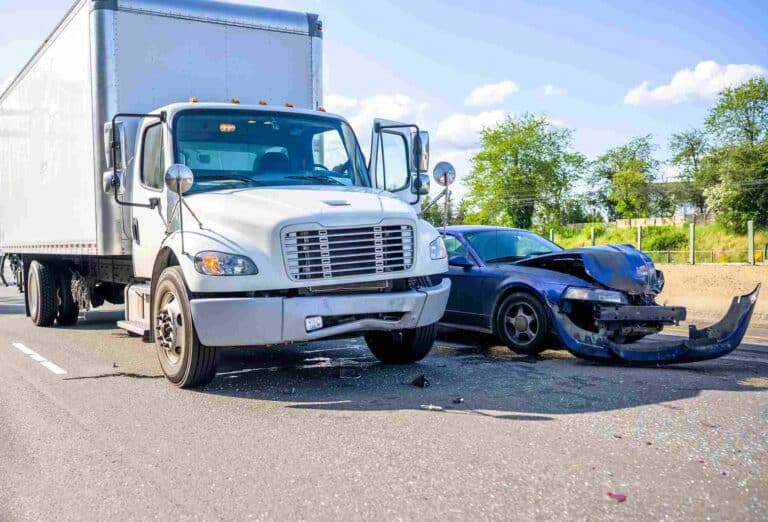The Metropolitan Transportation Authority (MTA) in New York City operates one of the world’s largest and busiest transit systems. Millions of people daily depend on the MTA for transportation via buses, subways, trains, and bridges.
But what happens when things go wrong? Specifically, can you sue the MTA after a subway accident in New York? You can learn more about your rights after being involved in a New York Subway Accident.
If you need legal representation to help with your case, contact our legal team at the Law Offices of Joseph J. Perrini, III. We can help you protect your rights and recover the compensation you deserve.
Understanding Subway Accidents
Navigating New York City’s subway system is a part of everyday life for many residents and visitors. But what happens when something goes awry in this underground labyrinth? While not common, subway accidents can have serious implications, causing severe injuries or even fatalities.
Given the complexities and the scope of potential incidents, it’s vital to understand what subway accidents entail.
Defining Subway Accidents
Subway accidents encompass a broad range of incidents that cause injury to passengers, employees, or even bystanders. It’s not just about subway collisions or derailments.
Variety of Incidents
These accidents can involve slip and falls due to poorly maintained platforms or subway cars, injuries from sudden stops or accelerations, or doors closing improperly. Sometimes, injuries can also result from crowd control issues or criminal activities like assaults that occur within the subway system.
The Role of Negligence
In many cases, negligence plays a key role in subway accidents. This can stem from operator error, inadequate maintenance, faulty equipment, or lack of appropriate safety measures. When such negligence leads to an accident, the injured parties may have a legal right to seek compensation.
Importance of Legal Guidance
Given the complexity of these scenarios, it’s crucial to have experienced legal professionals guide you through the process. Understanding your rights and the potential liabilities in subway accidents can help ensure you’re adequately compensated for your injuries.
The Sovereign Immunity Hurdle
Historically, many government entities, including the MTA, were protected from lawsuits by a legal concept known as “sovereign immunity.” This doctrine held that the state and its agencies couldn’t be sued without their consent.
However, in New York, the MTA is considered a “public authority,” which, under the law, means that it can indeed be sued. Yet, there are still restrictions and specific procedures that must be followed.
Notice of Claim Requirement
Under New York law, a Notice of Claim must be served within 90 days of the incident before suing a public authority like the MTA. This notice provides details of the accident and the nature of the damages being claimed. Failing to serve a Notice of Claim within this timeframe could jeopardize your ability to sue the MTA, so acting promptly is critical.
The Case of “Special Duty”
One notable challenge when suing the MTA is the need to prove that the MTA owed a “special duty” to the person injured. While the MTA has a general duty to provide safe transit, a special duty arises when there is direct contact or interaction between the MTA and the person injured, and the person relies on the MTA’s affirmative undertaking.
Suit Filing and Compensation
Following a subway accident in New York City, understanding your rights and the legal pathways to compensation is crucial. However, navigating the legal labyrinth can be as complex as the subway system.
Initiating the Legal Process
After a subway accident, you may proceed with a lawsuit if your Notice of Claim has been served and a settlement is not reached during the MTA’s investigation period. This legal action is aimed at securing compensation for your damages.
Proving Negligence
A significant part of this lawsuit involves proving the MTA’s negligence. This means establishing that the MTA had a duty to provide safe transit, that they breached this duty, and that this breach directly resulted in your injury. Evidence such as CCTV footage, witness statements, and expert testimony can play a crucial role here.
Determining Compensation
If your lawsuit is successful, the compensation awarded will depend on the specific circumstances of your case. Typically, compensation may cover medical expenses, lost wages due to time off work, pain and suffering, and any future costs related to the injury. In some severe cases, it might also include compensation for permanent disability or disfigurement.
Why New York Legal Representation is Essential
Facing the aftermath of a subway accident is daunting, and the intricacies of legal proceedings can further compound it. It’s one thing to know that you can use the MTA, but navigating the journey from incident to compensation is quite another.
There are deadlines to meet, forms to file, evidence to gather, and nuanced legal principles to grapple with. In this challenging journey, the value of skilled legal representation cannot be overstated.
Navigating Legal Complexities
When dealing with subway accidents, legal intricacies can complicate the situation significantly. Lawsuits against public authorities like the MTA involve strict timelines, adherence to particular procedures, and a nuanced understanding of legal principles. Experienced legal representation is essential to navigate these complexities efficiently and effectively.
Protecting Your Rights
A seasoned personal injury attorney will work diligently to protect your rights, ensuring that all necessary steps are taken promptly. From filing the Notice of Claim within the stipulated 90-day window to establishing the MTA’s negligence, they can guide you through every stage of the process.
Maximizing Compensation
Furthermore, an attorney can help maximize compensation by presenting a comprehensive and persuasive case. They can compile compelling evidence, consult expert witnesses, and negotiate robustly on your behalf, whether in settlement discussions or at trial.
Offering Support and Advice
Beyond the legal aspects, an experienced personal injury lawyer can provide valuable support and advice. Experiencing an accident can be distressing, and dealing with the aftermath can be challenging. A good attorney will fight for your rights and help you navigate these difficult times.
Contact Our Legal Team if You Are Injured in a New York Subway Accident
It is possible to sue the MTA after a subway accident in New York. However, the process is complex and fraught with legal intricacies. Early consultation with legal professionals, such as the team at The Law Offices of Joseph J. Perrini, III, is crucial to ensuring the correct steps are taken, preserving your rights to legal recourse. Safety is the MTA’s duty; when they fail in that duty, you need advocates who will fight for you.





